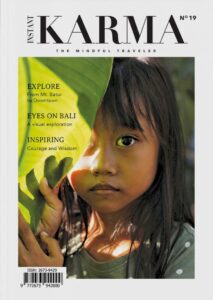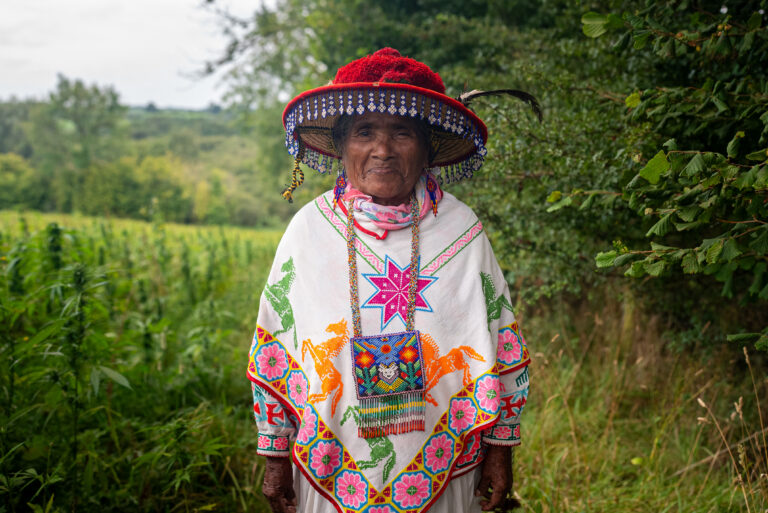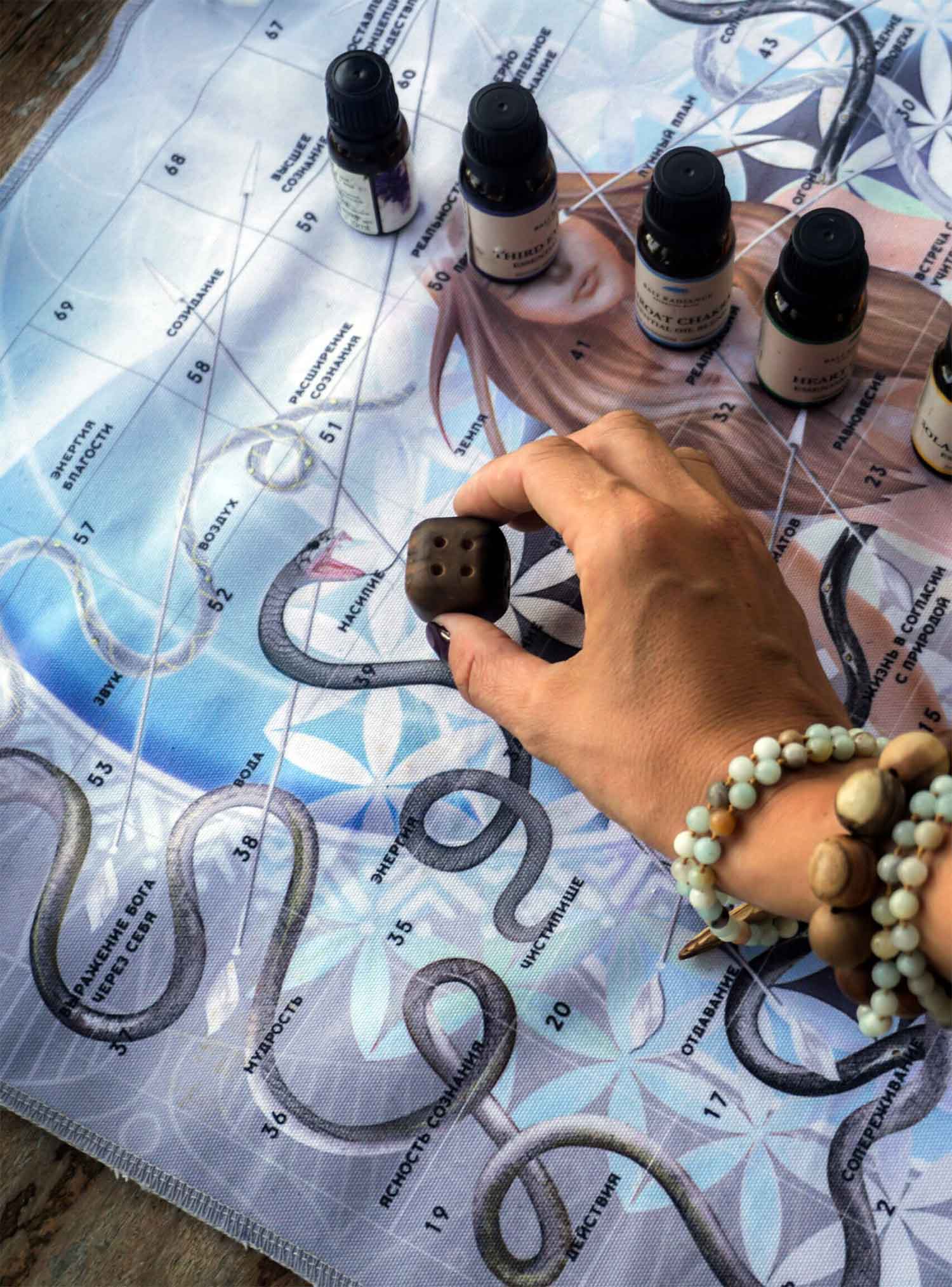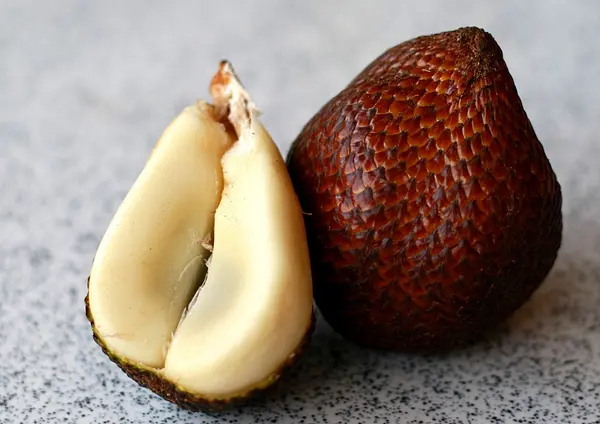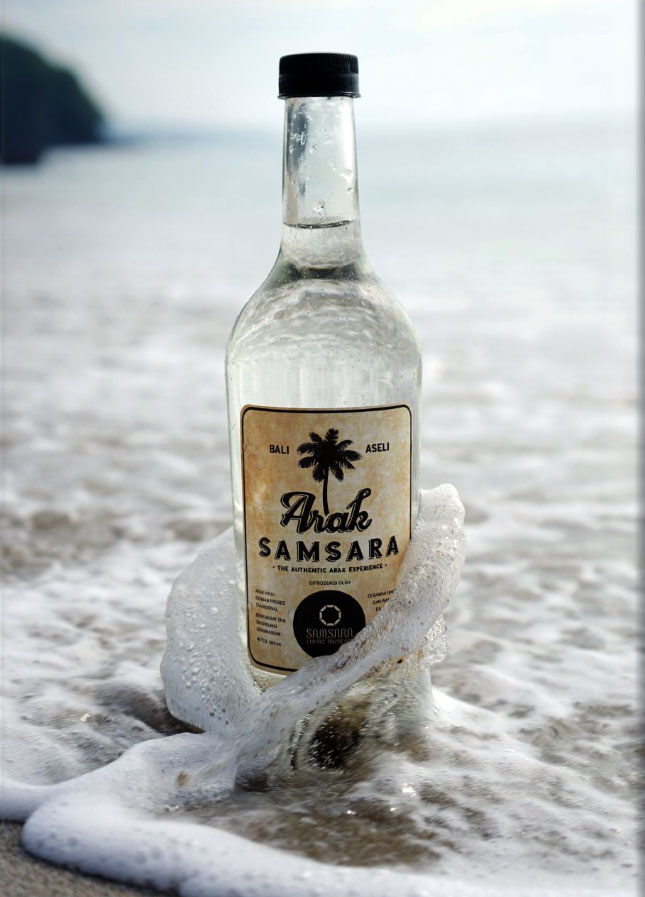As the first woman to drive a car in Ubud, in a male-dominated world, Ibu Murni was a true pioneer, forging new paths for the women in her community. When you reach Bali, simply mention Murni’s, and your driver will know your destination. The only question they might pose is whether you’re seeking accommodation, dining, shopping, a spa experience, or perhaps a chance to meet Bali’s most esteemed and hospitable living icon.
A Life Journey Filled with Courage and Wisdom
Ibu Murni, established Murni’s Warung, an exquisitely beautiful restaurant situated in Ubud, and later the award-winning boutique hotel, Murni’s Houses & Spa – the location for our conversation.
A trailblazer in Ubud, she became the first to open a store specializing in tribal art and antiques. Her thirst for knowledge and adventure and a passion for these artifacts propelled her to embark on extensive journeys outside Bali.
As a result, she achieved the remarkable distinction of being the first Balinese person to showcase Indonesian arts at renowned tribal art and textiles exhibitions in San Francisco.
“Congratulations, Ibu Murni, you filled your life with adventures!”
These words open our conversation, and I sense her wisdom born from a life full of rich and valuable experiences and adventures. Her story is one that inspires and uplifts.
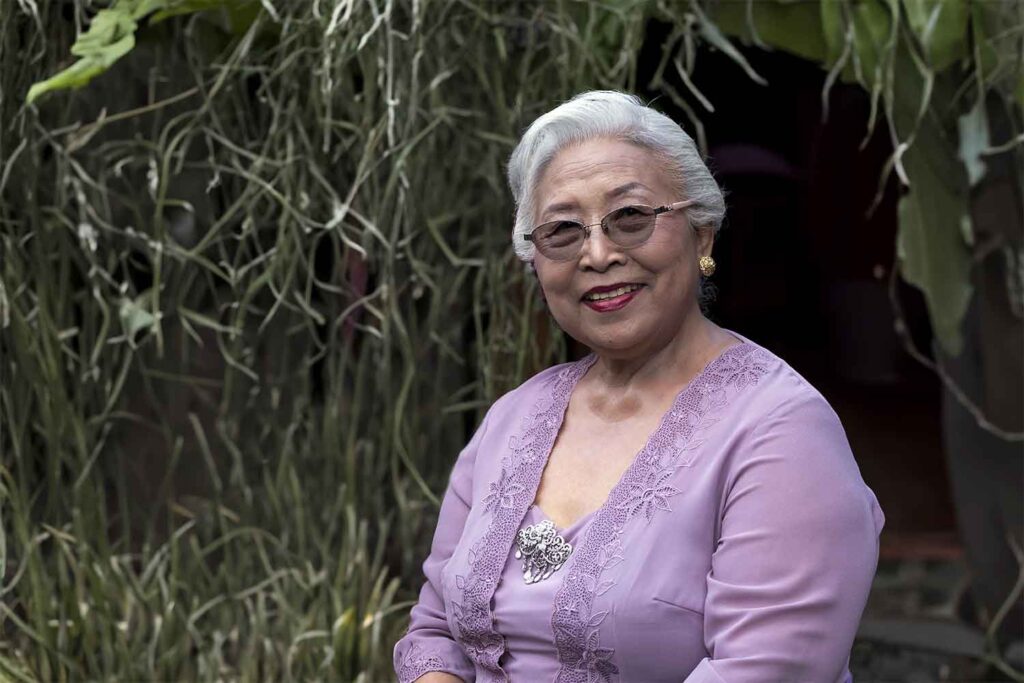
Ibu Murni’s life journey began at a time when education did not always follow the conventional path. In the tumultuous 1950s, she did not have the opportunity to complete her schooling or pursue higher education.
Instead, she stood by her mother’s side, supporting her during a time when life in Ubud was far removed from today’s standards. Unpaved roads, no electricity, no radios, no telephones were the norms of daily life.
Together with her mother, Ibu Murni provided the people of Penestenan with everything they needed for their daily lives: rice, sugar, coffee, kerosene, oil, and textiles. She recalls riding her bicycle to Gianyar to buy cigarettes and how her mother sold all kinds of fruit in Denpasar market. She learned the value of hard work and determination in those challenging times.
“I started working at the age of 12,” Ibu Murni recounts. “My mother was a tough woman, and she sold salt, among other things.” She remembers carrying salt, vegetables, and dried fish on her head, going from house to house to provide for the people of Penestenan when there was no market.
Money hardly existed; nearly everything was bartered, and salt meant rice.
The 1960s brought new adventures. Ibu Murni rode her bicycle three or four times a week to Sanur and Kuta to sell sarongs. She encountered tourists arriving in Bali by boat because there was no airport then. She reminisces about the early days of tourism on the island, selling sarongs to hippies and gaining insight into a changing world.
In 1974, she took the leap into the restaurant business and opened her Warung. Without knowledge of Western cuisine, she learned from her guests and incorporated their recipes into her menu. To this day, the names of those who taught her these recipes are listed on the menu.
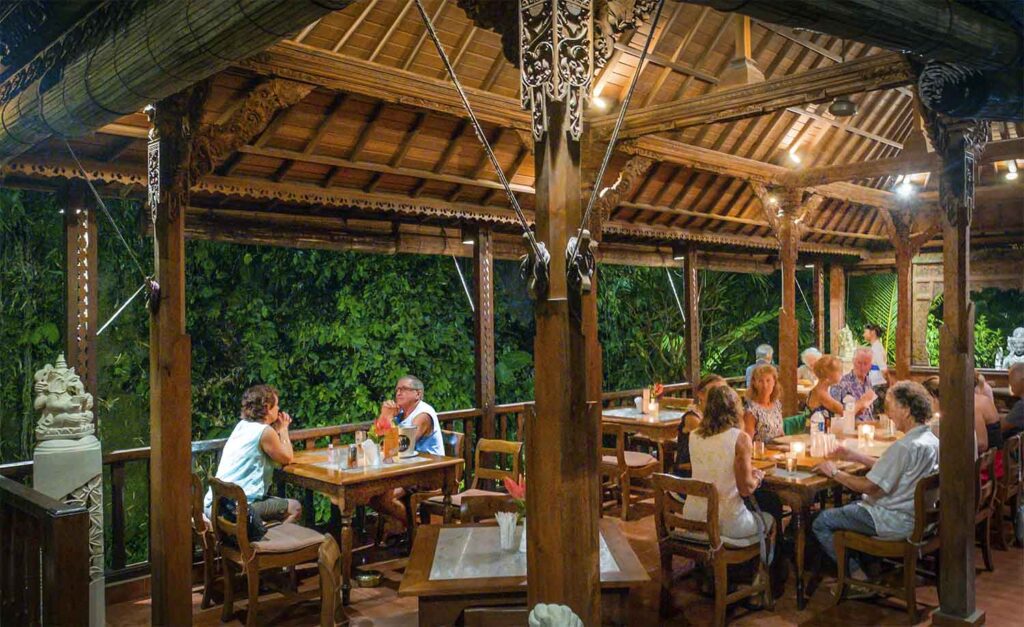
Murni’s Warung played a pioneering role in Ubud by offering the very first restaurant-style dining experience, transforming it into not only a culinary hotspot but also a vibrant hub for cultural interaction.
Swiftly, it evolved into, and continues to be, a rendezvous point for artists, musicians, dancers, royalty, politicians, and celebrities. Ibu Murni, in establishing this venture, not only created a successful business but also fulfilled a vital social function within her community.
Upon acquiring her first refrigerator, which had a mere 450 KWH power capacity, she ventured into crafting local ice cream. Her experimentation with exotic fruits, including mango and jackfruit, and her ability to surmount the obstacle of frequent power outages threatening to liquefy her ice cream showcased her resourcefulness and determination.
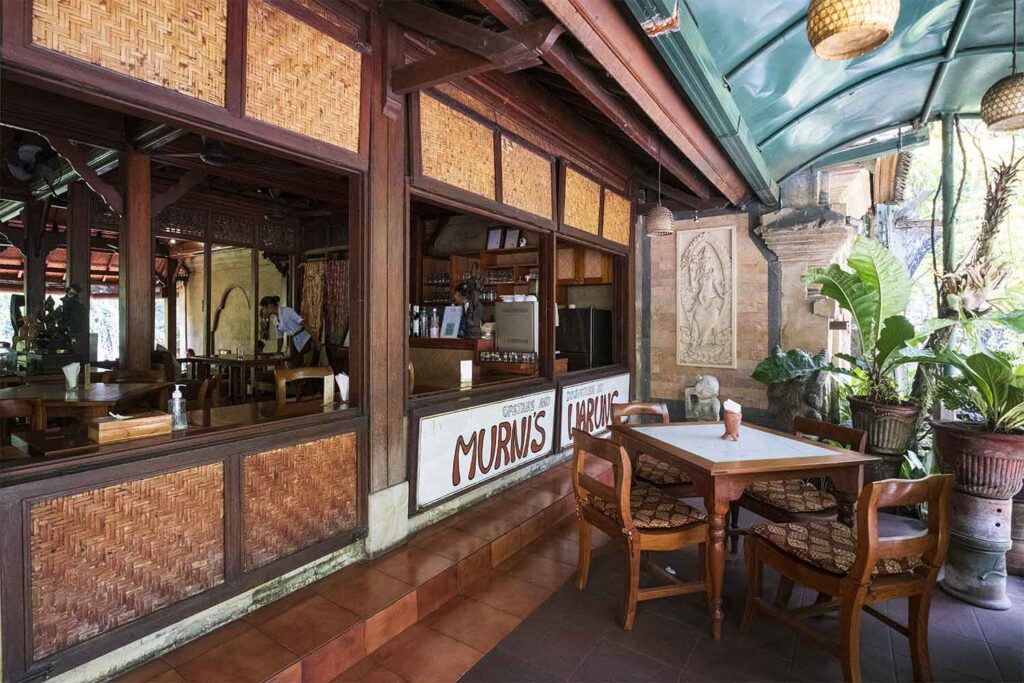
Ibu Murni’s spirit of adventure extended beyond just ice cream.
She eagerly acquired cake recipes from various individuals and then stepped into yogurt production. Her introduction to yogurt culture in Bali was facilitated by Aleang, a Chinese-Indonesian friend hailing from Bandung, who owned a café in Legian. Aleang generously shared this culture with Ibu Murni, making her a pioneer in yogurt production within the Ubud region.
Murni still welcomes guests, tourists, and locals to her Warung, shop, houses, and spa.

Looking back on her fulfilled life, the question arises: How can one live a life without regrets?
Ibu Murni responds, “I still regret not being able to complete my education. But overall, I am very happy and grateful. “
“As long as you live your life and can shape it yourself, that is the key.”
Ibu Murni – a journey filled with courage and wisdom, reminding us that life should be lived in all its diversity.
Her website is www.murnis.com




